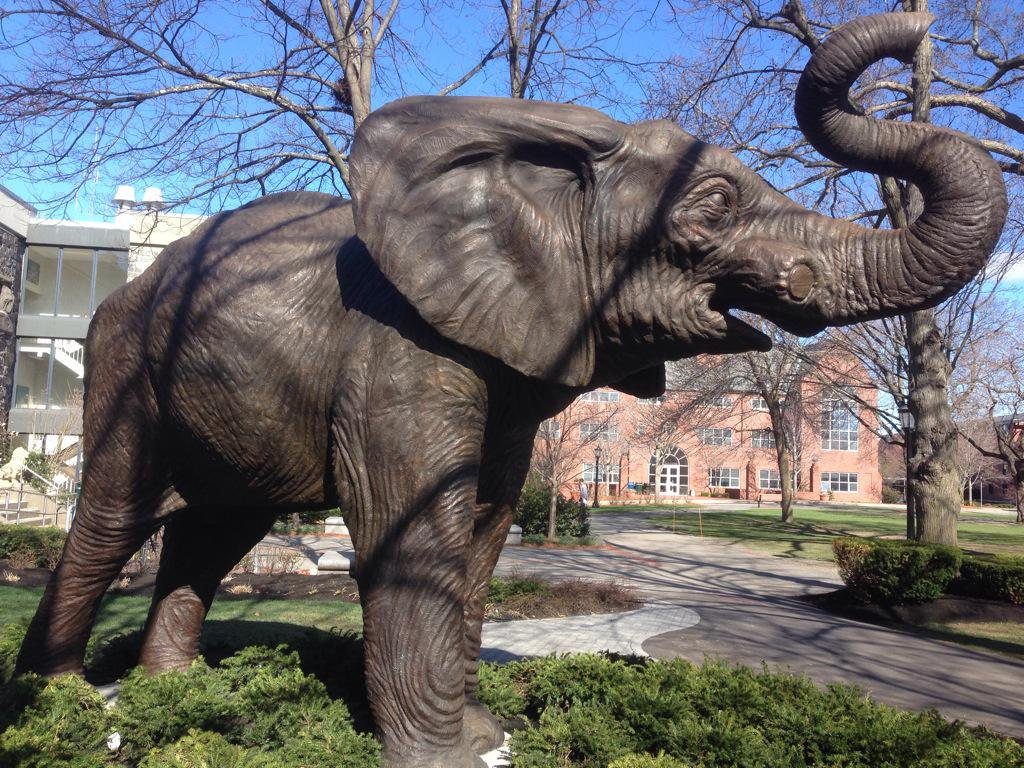
Before beginning Tufts’ Postbac Program, I’ll admit that I was concerned about the coursework. Although I was apprehensive of the steep learning curve of transitioning into the hard sciences after having studied religion in college, my biggest concern was finding ways to stay motivated by the material. As I settled into my first term, I struggled to justify all the hours I devoted to making sense of atomic orbitals and osmotic gradients in plant tissue. I tried to appreciate that this information theoretically formed a necessary foundation for understanding more complex physiological concepts, but it was hard to shake the feeling that I was just being asked to jump through hoops.
In the years between finishing undergrad and beginning my Postbac, I’d been privileged to work with patients across the socio-economic spectrum. This ranged from providing massage to clients dedicated to self-care in Southern Oregon to offering tear gas treatment to Eritrean refugees in France’s Calais Jungle. My drive to healthcare was firmly rooted in getting to work with people directly and, to be honest, the premed coursework often felt irrelevant to the type of work that I hoped to do.
Moreover, most of my experiences in healthcare had been disparate and decontextualized, and I felt hungry for a deeper understanding of them. Having seen similar ailments and concerns cluster among individuals of the same population, I had the deep feeling that far less of one’s own health is in the hands of the individual, let alone their physician, than the modern medical field has led us to believe. However, without any academic background in this area, I had a difficult time articulating these feelings and seeing the larger picture in which my patients were situated. To this end, the premed requirements just didn’t seem to provide me with any actual insight into health.
Professor Knoepfler’s Behavioral Determinants of Health course was an absolute breath of fresh air. It provided me with population data to corroborate my suspicions and biopsychosocial theories that explained my experiences far more eloquently than I ever could. Every week I learned something that directly applied to my work and how I aspired to practice. By depicting the real yet unseen forces that shape individuals’ health and well-being, the course provided a valuable corollary to the individual-oriented approach that our current medical model highlights. Rather than undermining this approach, the biopsychosocial perspective enriches it, allowing us as future physicians to re-examine what might be most useful to offer our future patients.
Delving into the behavioral determinants of health not only allowed me to make better sense of my past experiences in healthcare, but also provided a valuable framework for understanding the new ones that I was having working with survivors of torture at Boston Medical Center. My coursework shed light on exactly why most of the health problems that plagued our patients seemed to be more effectively treated by a social worker than they could be in the doctor’s office. Although patients’ difficulty accessing food and shelter generally goes beyond the scope of any individual provider, understanding the role that these difficulties play in shaping health outcomes not only provides an extra dose of compassion for a patient, but can also broaden the scope of potential treatments.
I especially appreciated Professor Knoepfler’s approach to ensuring that the course’s lessons were translated into actionable treatment plans. We were asked to construct a personal narrative and health history for an imaginary individual and to develop a treatment plan based on the lessons of the course. Given all the direct patient contact I was afforded at the Refugee Center, I drew from common themes that I heard, and developed a comprehensive care plan that not only addressed physical health, but that also sought to buffer the impact that low socioeconomic status, racism, and cultural barriers have on refugees’ health. The immediacy of these projects to my work was striking, and it was often hard for me to tear myself away from them. While this approach to treatment may be less glamorous or dramatic than the depictions of doctors we are typically treated to in the media, Professor Knoepfler’s class has convinced me that this perspective is instrumental to caring for a patient. Although it is hard to say where my work will take me in the future, I have no doubt that the lessons that I learned in Behavioral Determinants of Health will continue to inform my approach to care.
Alec Terrana
University of California, San Diego School of Medicine
A profession relating to health and medical career is a rewarding job but, also a tough one. It is important to know where you are passionate and pursue that dream of yours! Thank you for sharing this helpful information.